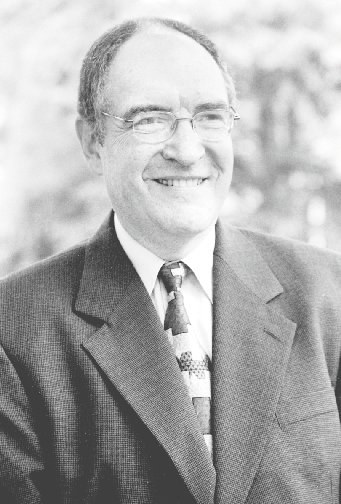Interview with a bullying victim's dad, part two
Last week I presented the first installment of an interview with John Halligan, a father whose son was a victim of school bullying and committed suicide. The interview is a natural outgrowth of a recent mini-series that ran in the Principal's Office about bullying and anti-bullying programs.
When Ryan Halligan left sixth grade for the middle school, he was being tormented by a boy with a reputation as a bully. John and his wife tried everything good parents would do to solve the problem, to no avail. Their last resort was to teach Ryan self-defense to ward off the bully.
SK: Did the boxing work out?
JH: I remember that when I was a kid and had an issue with another boy, my uncle told me not to take any s**t from the kid and to go down and knock his head off. That was the old-fashioned, traditional way of dealing with a problem like this. What I totally miscalculated and got blindsided about was the emotional side of the problem.
SK: What happened next?
JH: My son tried a different approach altogether, trying to become friends with this kid.
SK: Did that work?
JH: No, it backfired. Ryan divulged something that happened during a medical exam, which he thought was pretty funny. The bully took the information and ran with it, spreading a rumor around the school that my son was gay.
SK: You tell someone an intimate detail in confidence and suddenly it becomes everyone's business. Sort of like sexting today. One kid sends a picture of himself or herself to a supposed friend, and that kid, in turn, circulates it to the entire school.
JH: Exactly. It was a primitive form of sexting. Ryan was a funny kid, and he enjoyed telling funny stories. But as I said, this one backfired. The other kids turned on him.
SK: Unfortunately, being called gay is one of the biggest put-downs, particularly on the middle school level when kids are first dealing with their sexuality. Many kids use the term as a negative: "Oh, that's gay." It is very hurtful to some students to hear the word "gay" used in that way.
JH: This bully spread this rumor about him in school and online. It was the online component that really got out of hand during the last summer of his life.
SK: Educators will concur: The computer can be a terrific tool or a destructive weapon. How did you deal with this twist?
JH: Actually Ryan dealt with it. He spent a lot of time behind closed doors on his computer trying to kill this rumor. He cooked up this idea that if he got something going with one of the girls in his class, when eighth grade started up in the fall, then he could call her his girlfriend and this gay rumor thing would die out.
SK: Ryan took things into his own hands. Sounds like a plan. How did that work out?
JH: It, too, backfired. Unfortunately, that girl ended up setting him up. She pretended to like him online during the summer. However, when school resumed, she told him that she had just been joking and that she really thought he was a loser and didn't want anything to do with him. And to make matters worse, she passed around private conversations they had to further humiliate him.
SK: Was this what pushed him over the edge?
JH: No, not yet. Unfortunately, all this bad stuff that occurred came at the worst possible time when Ryan collided with a kid he knew from years ago. This boy had moved away and now lived about three hours away from us. But through the Internet, they got reconnected.
SK: The Internet, again.
JH: Yes. And with all this hurt and pain, they started to commiserate how they hated the popular kids, how they made them feel like crap, and the talk of suicide started to creep into the conversation. Together, they started to explore Web sites about how to kill yourself.
SK: The Internet -- yet again.
JH: Then there was this short conversation between the two of them I found two weeks before my son's death. Ryan wrote: "Tonight's the night -- I think I am going to do it." And the other boy responded back: "It's about f***ing time."
SK: It sounds like the perfect storm of events.
JH: Yes it was. For someone to kill himself, it takes a lot. Talk to any expert -- an incredible amount of willpower to do something like this. You've got to know that a person is in a tremendous amount of emotional pain.
SK: Several years ago, I ran an extended series about teen suicide. This fits the pattern exactly, that feeling of helplessness and hopelessness.
JH: Yes. And it was then that Ryan sort of Columbined himself.
Again, John and his wife were trying to do everything imaginable to help Ryan. In the next column, we'll see what happens when they turn to the school to intervene and what ultimately takes place.
Dr. Steven Kussin, a high school principal for 21 years, is an adjunct professor at Hofstra University and an educational consultant for school districts around the country. His guidebook for administrators was published by Corwin Press. Contact him at stevekussin@aol.com.
(c) Dr. Steven S. Kussin, 2010

 71.0°,
Mostly Cloudy
71.0°,
Mostly Cloudy 




